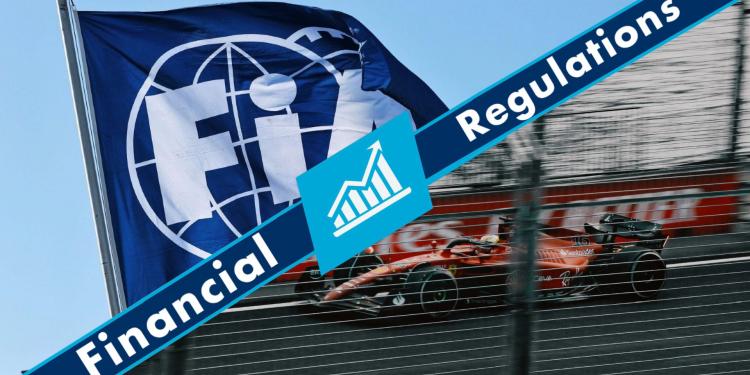***
The Budget cap and the F1 Financial Regulations
The Budget cap is one of the most relevant additions to the new set of regulations created to establish a new era in Formula 1 history. The budget cap and its procedures were introduced by FIA’s Financial Regulations from the 2021 F1 season. The Financial Regulations aim is to improve the financial sustainability of Formula 1 teams, meanwhile ensuring the long-term viability of the Championship and mitigating the gap in performance between competitors.
This intricate regulation establishes a new board called “Cost Cap Administration”[1], which is responsible for administering and monitoring the compliance with the Financial Regulations of the F1 teams. It can also investigate instances of suspected non-compliance through the auditing process or by launching full investigations and, furthermore, taking appropriate enforcement action in respect of any alleged breaches.
The breaches, as described in the art. 8 of the Regulations, can be divided in three categories:
- Procedural breach: violation only related to procedural aspects of the Regulations, i.e. submitting the financial report after the deadline.
- Minor Overspend breach: violation of the budget cap fixed amount with a surplus discrepancy that can be contained to 5%.
- Material Overspend Breach: it’s the most relevant breach possible and arises when the discrepancy between the cost cap and the amount spent by a team is more than 5%.[2]
The CCA has a plethora of possible actions in dealing with an alleged breach of the Financial Regulations. It can start the procedure to draft a settlement, referred to as an “Accepted Breach Agreement”[3], with the Competitor concerned in case of Procedural Breach or Minor Overspend Breach, or, if it is impossible to reach an agreement regarding the violation, it can also refer the case to the “Cost Cap Adjudication Panel”[4]. The CCAP is a board created for judging the breach of the Financial Regulation and is described in the article 7. Its decisions can be appealed to the FIA International Court of appeal. In the event of an alleged Major Overspend Breach, the CCA must refer the case to the CCAP and could not use the aforementioned ABA procedure.
The sanctions, listed in art. 9, are heterogeneous and are divided into three main categories:
A) Financial Penalty;
B) Minor Sporting Penalty;
C) Material Sporting Penalty.
The Financial Penalty, as the name suggests, is a fine in an amount to be determined on a case by case basis. This is the sanction with the lower grade of affliction. Minor Sporting Penalty and Material Sporting Penalty are similar but divided by the fact that the sanctions will be more severe in the case of Material Sporting Penalty then in Minor Sporting Penalty. The possible measures went from a deduction of Constructors and/or Drivers Championship points to a suspension from an entire Competition or an exclusion from the entire Championship.[5]
The Possible breaches in 2023 F1 Championship
Starting from the very first race of the 2023 F1 Championship a lot of team principals stated, on various occasions, that they will not be able to comply with the Financial Regulations, considering how long the championship will be and due to all the expenses related to the development of a competitive team. It is important to remember that bigger teams really struggle to comply while small teams are a lot below the defined budget for the season.
This type of statement it’s not just a way to prove the political power of bigger teams, but it is also a way to try to follow the example of Red Bull and Aston Martin that failed to comply with the regulation in the 2021 season and were punished in 2022 but only with minor sanctions that did not affect their 2022 results.
Also FIA, towards the highest representative on this matter, Federico Lodi, who is the Single-Seater Financial Regulations Director, expressed its thoughts on the situation. He stated that “As the regulator, if we see a breach, we have to do our job. I understand that maybe for the fans the timing was not ideal, but rules are there to be respected and we have to do what we have to do. Unfortunately, if there is a breach there regulations will find it and there are consequences.”[6]
This situation creates a lot of uncertainty about the results achieved on track, mostly because they are related to the past sporting year, even if they can be verified only afterwards. This condition, in case of huge Material breaches, could lead to a total uncertainty on the championship results for an amount of time that can’t be suitable with the fastest pace of the current Formula One.
What will happen?
Considering that the Financial reports are now available to the FIA and they are currently being verified, a lot of voices are arising on the fact that, at least 3 teams, need to give further clarifications about their expenses and their compliance with the regulation.
This situation could create a lot of different scenarios due to a huge number of variables that could affect the outcome.
-The first one to consider is related to the name of the teams that could have breached the rules. Are they the same as last year? In that case the sanctions cannot be lighter or mitigate, because we are not talking of an error related to the juvenile issues of such a complex and ambitious regulation anymore but we are talking of a systemic way to exploit a grey area of these rules that needs to be stopped. It is probable that this will be the situation when all the reports will be properly checked. It is also important to remember that one of the teams that breached the rule had signed an ABA that is secret and this could also affect further violations.
- Another thing to consider is what kind of violation will be contested. This is really important because teams could use this as a grey area to gain benefits in exchange for minor sanctions that could substantially give a constant <5% advantage on the cost cap, which in the long run creates a great disadvantage but it could be punished only with a fine that, for a big team, is not such a great loss in exchange of the result that this manoeuvre can assure. This situation could only be mitigated by the presence of art. 8.15 lett. C. that stated as aggravating circumstance “breaches of these Financial Regulations in respect of a previous Reporting Period”.
Time is now running and this year will for sure be a turning point for this set of rules. They could prove to be effective after a first year of application or, on the other hand, they could fail in their main purpose, opening a scenario in which would be necessary to take further action to implement them or just abandon them with the bitter epiphany that they are not capable of obtaining the wanted results: a fair playing field and the economic sustainability for teams in Formula 1.


